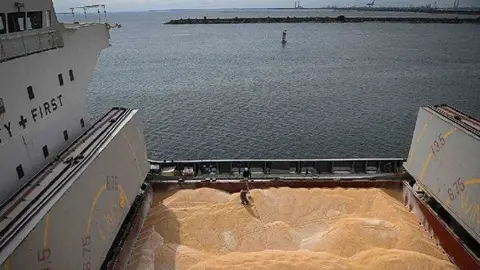Food prices rise in July due to end of Black Sea pact, FAO says

The United Nations Food and Agriculture Organisation's (FAO) benchmark index of world food commodity prices rose in July following Russia's withdrawal from the Black Sea agreement, which allowed Ukrainian grain to be exported in the midst of the war.
The FAO indicator, which tracks monthly changes in the prices of the most traded food commodities worldwide, averaged 123.9 points in July, up 1.3 % from the previous month.
Among the commodities that have risen the most, vegetable oils stand out, with a rise of 12.1 points after seven consecutive months of decline, which the agency blames directly on Moscow and its decision to end the pact that stabilised grain supplies in the midst of the invasion of Ukraine.

"World prices of palm, soybean and rapeseed oils increased due to concerns about the outlook in the main producing countries," says the FAO in its report, which places sunflower oil as the most affected with a 15% increase in the last month.
The Russian decision has also had a direct effect on wheat prices, which have risen 1.6%, the first increase in nine months.
In fact, last week UN secretary general António Guterres urged Russia at an FAO summit to resume the initiative, which allowed the export of Ukrainian grain and fertilisers, "essential to ensure stability in supply and prices".
Despite the widespread rise, the agency stresses that prices are well below the values they reached a year ago, down 11.8% from July 2022, thanks in part to Latin America balancing some mismatches.

"The cereal price index declined by 0.5% since June, driven by a 4.8% drop in international coarse grains quotations due to increased seasonal maize supplies from ongoing harvests in Argentina and Brazil and potentially higher-than-expected production in the US," FAO argues.
The exception is for rice, whose prices rose by 2.8% from the previous month to a substantial 19.7% increase year-on-year. This is the highest level since September 2011, a rise driven by limits imposed by India on the export of certain rice varieties.
"This upward pressure on rice prices raises substantial concerns about the food security of a large part of the world's population, especially those who are poorer and spend more of their income on food," FAO warned.
Meanwhile, prices of sugar (3.9%), milk (0.4%) and meat (0.3%) fell, although with the exception of pork due to seasonal high demand and supply shortages in Europe and the USA.









